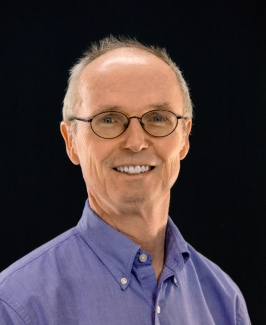
The Nesbitt Laboratory pursues research in four main areas:
- High resolution laser spectroscopy of radicals, ions and molecular ion clusters
- Chemical Reaction Dynamics: Gas-Liquid
- Quantum nanostructures and photonic nanomaterials
- Single Molecule Biophysics: Microscopy, Kinetics and Thermodynamics
The group's work involves extensive use of state-of-the art cw and ultrafast pulsed laser technology, nonlinear generation of tunable mid and near-infrared laser light, fast analog electronics, scan probe methods, confocal microscopy, servo-loop control, shaped supersonic expansions, plasma discharges, kinetic analysis and quantum theoretical calculations. A central unifying goal of the research program is the elucidation of fundamental kinetics and dynamics of elementary chemical/biophysical processes from both experimental and theoretical perspectives.
Professor Nesbitt is a Fellow of JILA; a Physicist at the National Institute of Standards and Technology (NIST); a Full Professor in both the Department of Chemistry and Biochemistry and in the Department of Physics.


 The Physics Frontiers Centers (PFC) program supports university-based centers and institutes where the collective efforts of a larger group of individuals can enable transformational advances in the most promising research areas. The program is designed to foster major breakthroughs at the intellectual frontiers of physics by providing needed resources such as combinations of talents, skills, disciplines, and/or specialized infrastructure, not usually available to individual investigators or small groups, in an environment in which the collective efforts of the larger group can be shown to be seminal to promoting significant progress in the science and the education of students. PFCs also include creative, substantive activities aimed at enhancing education, broadening participation of traditionally underrepresented groups, and outreach to the scientific community and general public.
The Physics Frontiers Centers (PFC) program supports university-based centers and institutes where the collective efforts of a larger group of individuals can enable transformational advances in the most promising research areas. The program is designed to foster major breakthroughs at the intellectual frontiers of physics by providing needed resources such as combinations of talents, skills, disciplines, and/or specialized infrastructure, not usually available to individual investigators or small groups, in an environment in which the collective efforts of the larger group can be shown to be seminal to promoting significant progress in the science and the education of students. PFCs also include creative, substantive activities aimed at enhancing education, broadening participation of traditionally underrepresented groups, and outreach to the scientific community and general public.